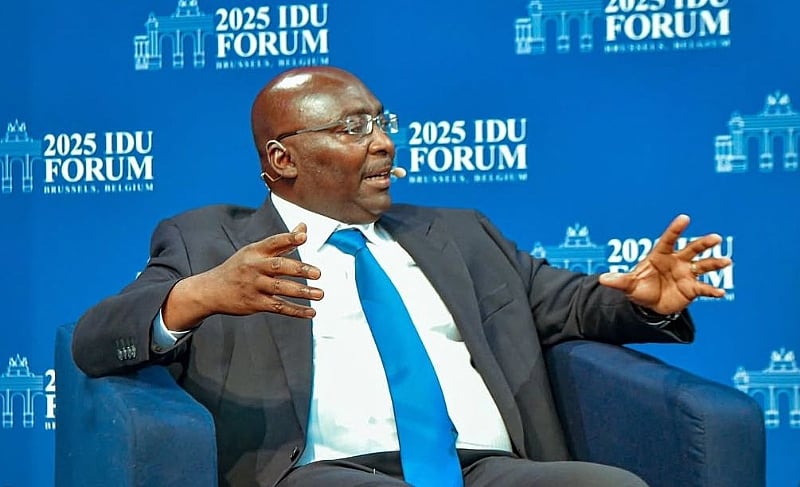The aftermath of the New Patriotic Party’s (NPP) 2024 electoral defeat saw the emergence of internal divisions and attempts to pinpoint the causes of the loss. Dr. Mahamudu Bawumia, the NPP’s flagbearer in the 2024 election, directly addressed and refuted claims suggesting his Islamic faith played a significant role in the party’s setback. These claims, voiced by some within the party, including Nhyiaeso MP Stephen Amoah, posited that the Ghanaian electorate was not ready to elect a non-Christian president. Bawumia countered this narrative, emphasizing the multi-ethnic and multi-religious nature of the NPP and the broad base of support he received, transcending religious and ethnic lines.
Bawumia, speaking at the NPP’s National Chairmen Caucus Conference, challenged the notion that his 4.7 million votes were solely from Muslims or members of his ethnic group. This substantial number, he argued, demonstrated a wider appeal and rejected the oversimplification of the electoral results through a religious lens. He underscored the importance of unity within the party and cautioned against divisive rhetoric that could fracture the NPP along religious or tribal lines. Such sentiments, he warned, are not only inaccurate representations of the election’s outcome but also pose a significant threat to the party’s cohesion and future prospects.
The former Vice President’s assertions highlight a critical debate within the NPP regarding the factors contributing to their 2024 defeat. While some attributed the loss to religious bias, Bawumia advocated for a more nuanced understanding, emphasizing other potential factors that likely played a more substantial role. This internal discourse reflects the party’s efforts to introspect and analyze the electoral landscape to strategize for future elections. By directly addressing and dismissing the religious bias claims, Bawumia aimed to redirect the conversation towards a more productive analysis of the party’s performance and the development of a more inclusive and effective political strategy.
The timing of Bawumia’s remarks is significant, coming shortly after the NPP’s National Executive Committee (NEC) announced January 31, 2026, as the date for the party’s 2028 presidential candidate election. This announcement sets the stage for another internal contest, and Bawumia’s response to the religious bias allegations can be viewed as a strategic move to solidify his position within the party. By emphasizing his broad appeal and denouncing divisive rhetoric, he seeks to project an image of unity and inclusivity, qualities that could be crucial in securing the party’s nomination for the next presidential election.
The debate surrounding the role of religion in Ghanaian politics is not new, and Bawumia’s experience highlights the complex interplay of religious identity and electoral dynamics. While some within the NPP sought to explain the 2024 defeat by pointing to religious bias, Bawumia’s argument suggests a more complex reality. His significant vote share indicates a broader appeal, transcending religious affiliations, and underscores the importance of considering a multitude of factors when analyzing electoral outcomes.
Moving forward, the NPP faces the challenge of navigating these internal divisions while preparing for the 2028 elections. Bawumia’s insistence on unity and his rejection of divisive narratives signal a commitment to moving beyond these internal debates and focusing on rebuilding the party’s strength. The 2026 primaries will likely be a testing ground for the party’s cohesion and the resonance of different narratives surrounding the 2024 defeat. The ability of the NPP to address these internal challenges and present a united front will be crucial in determining its success in future elections.














